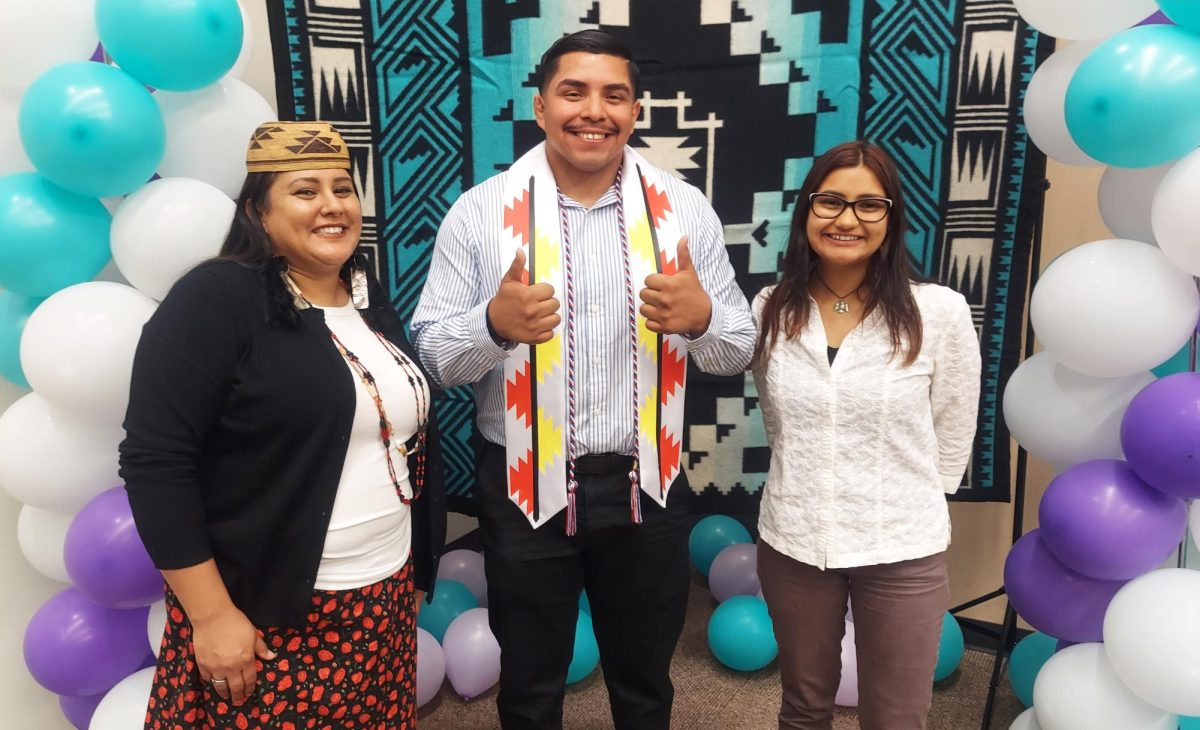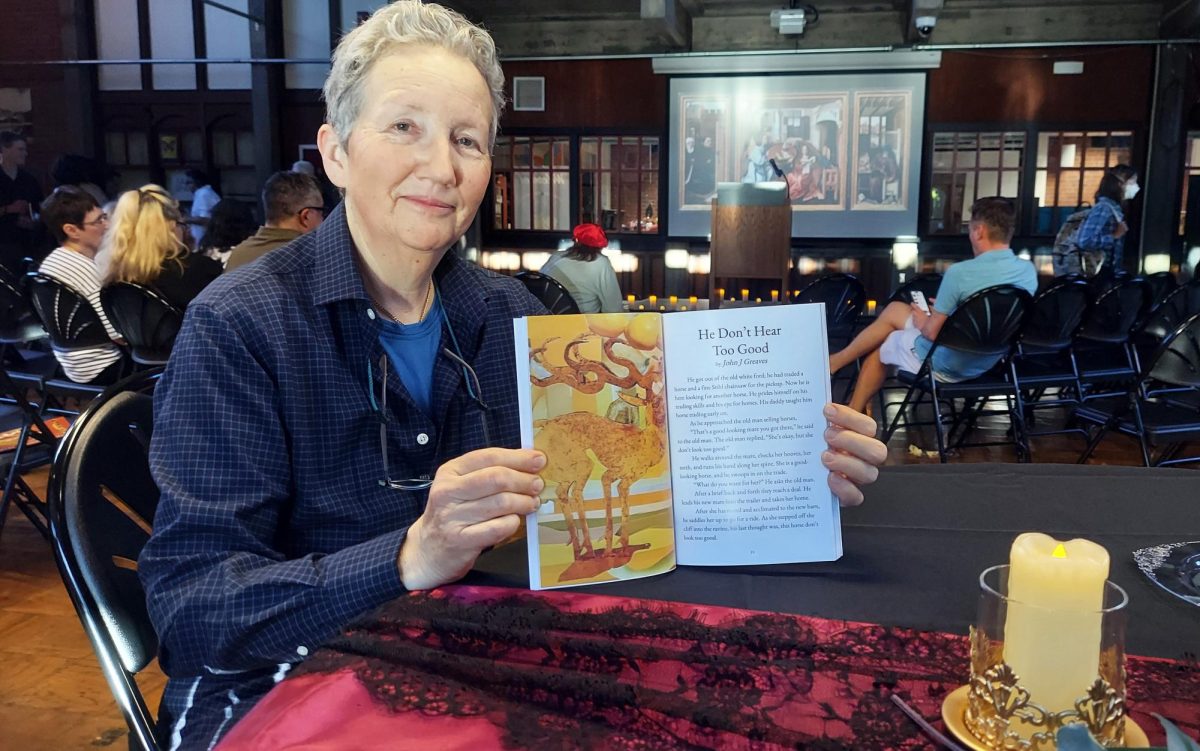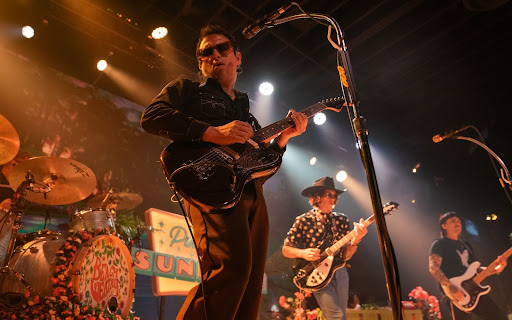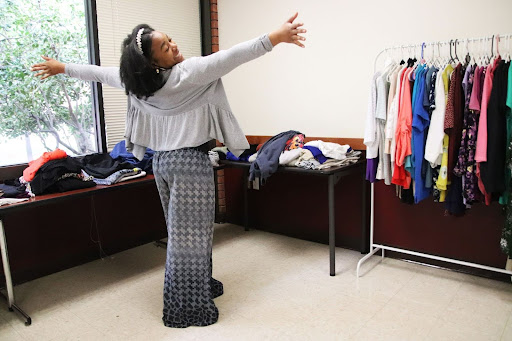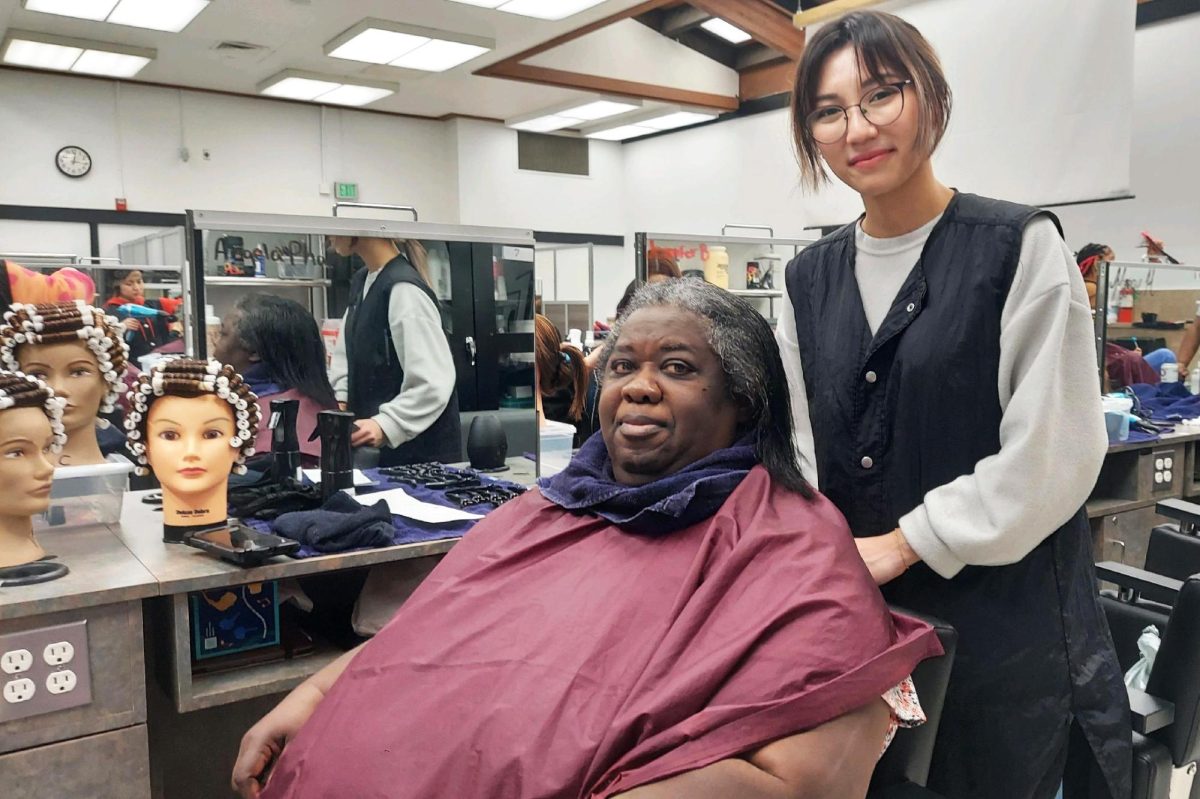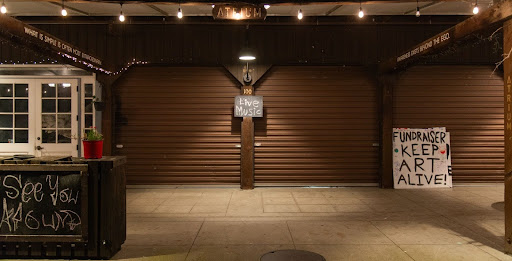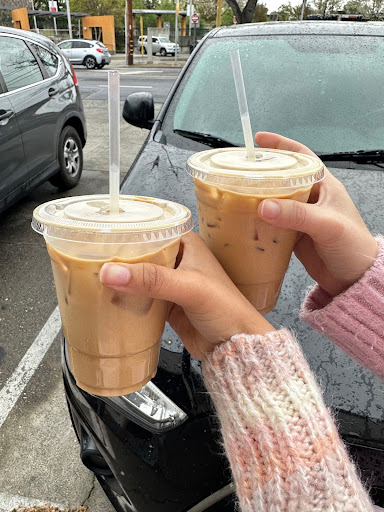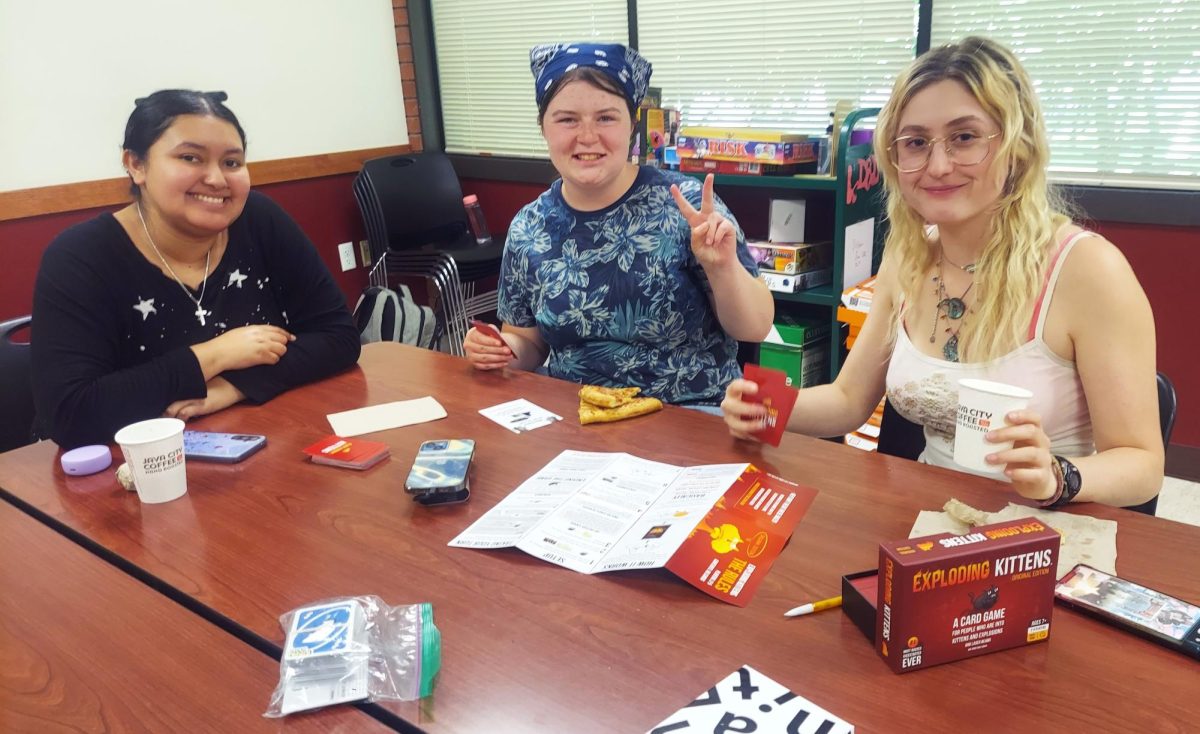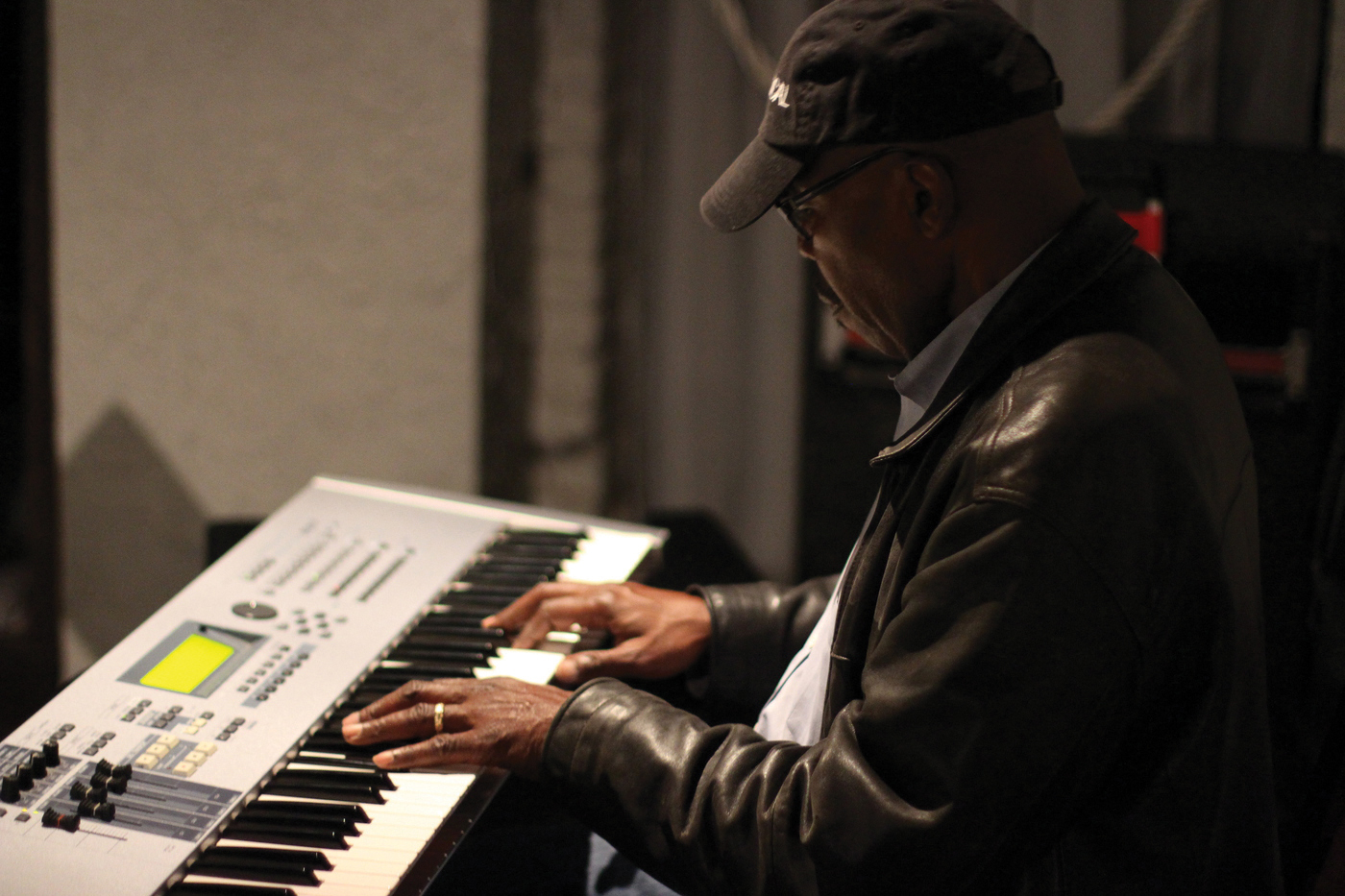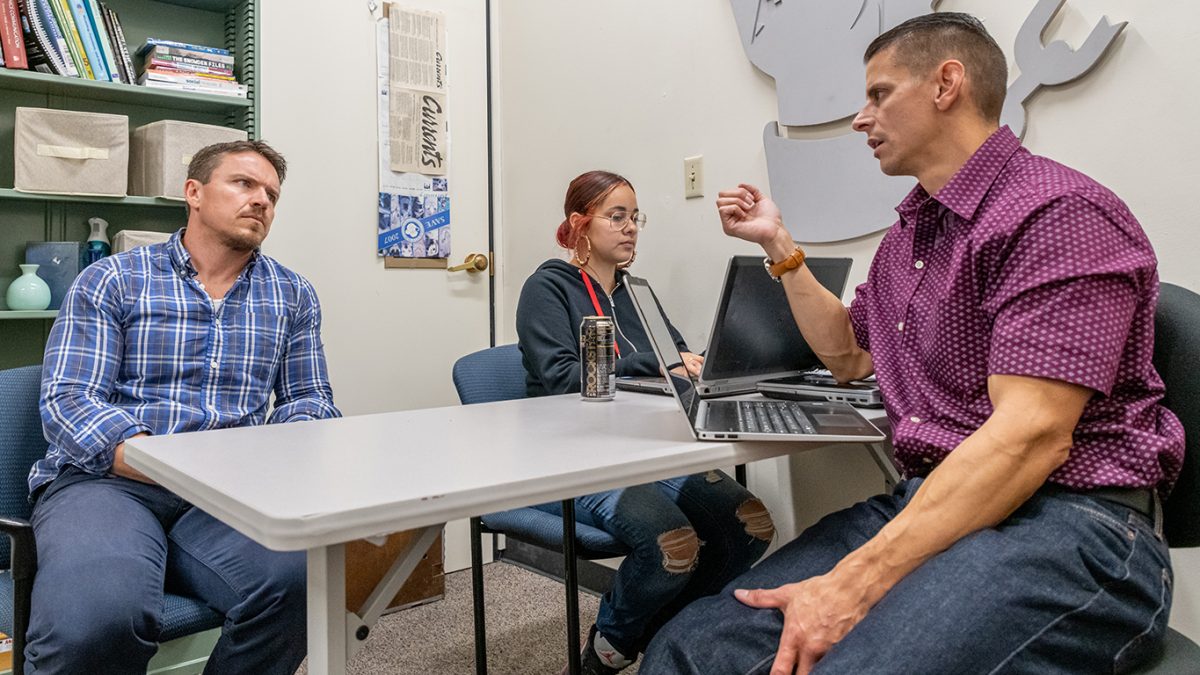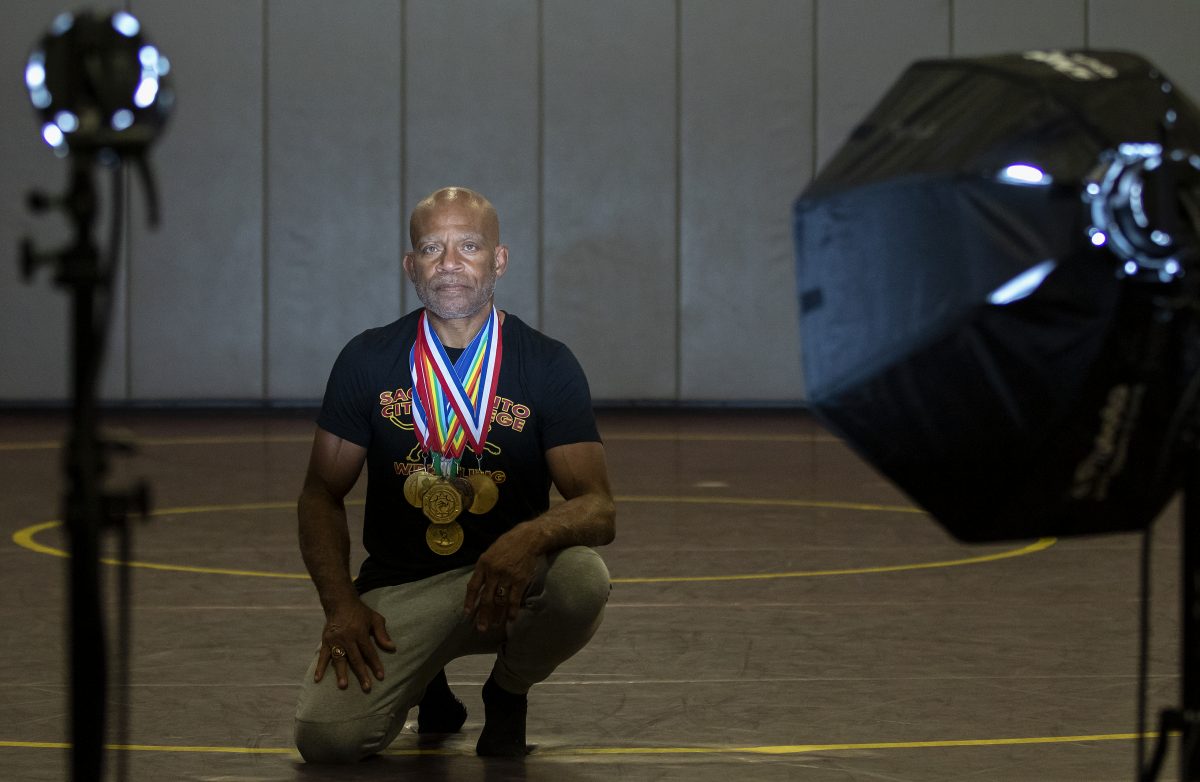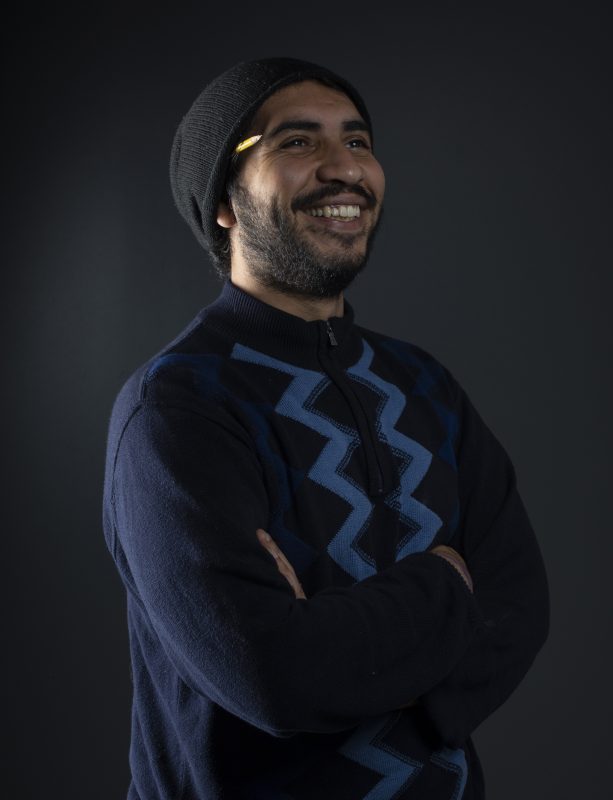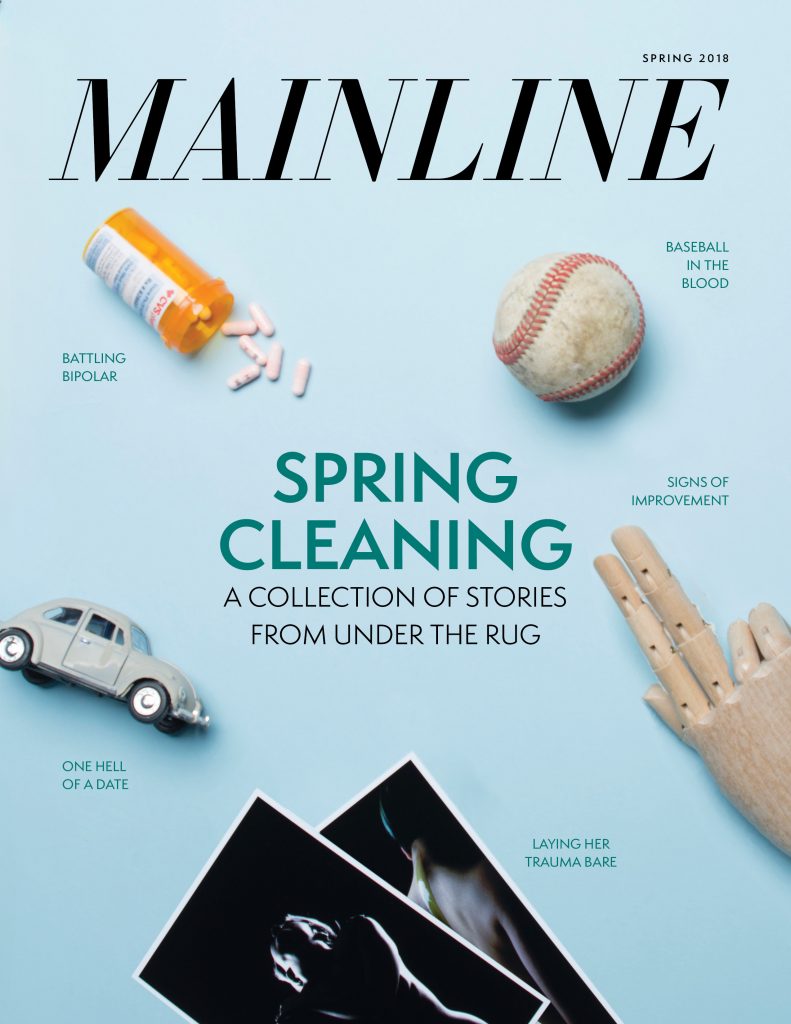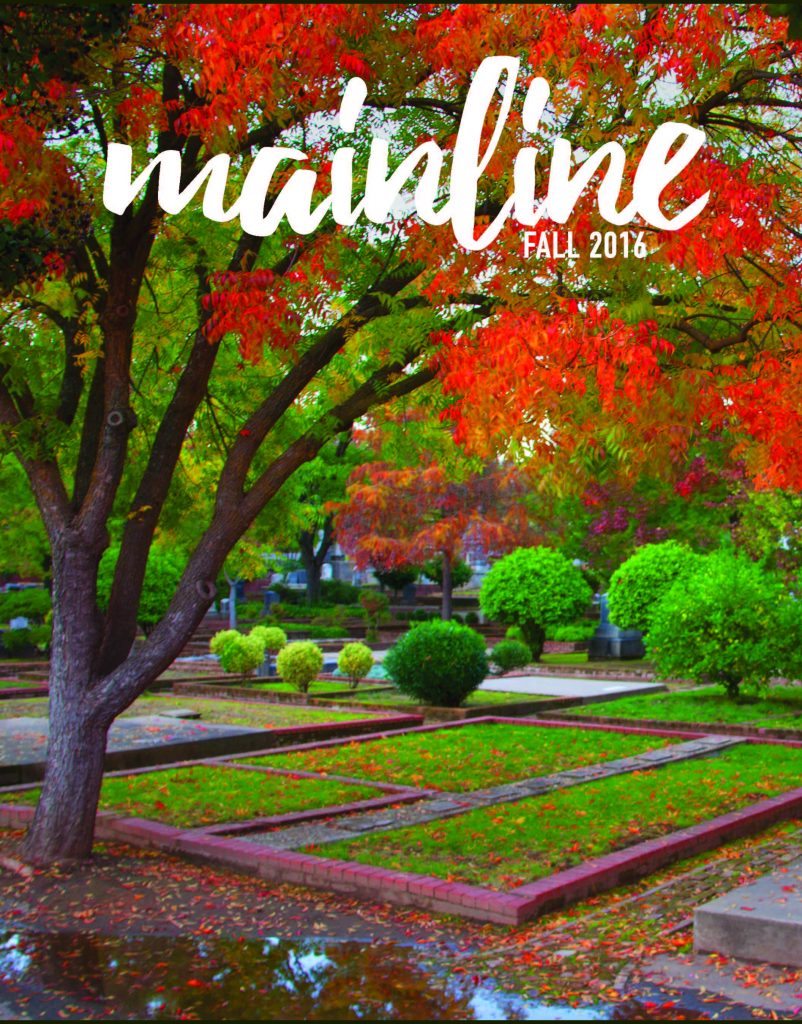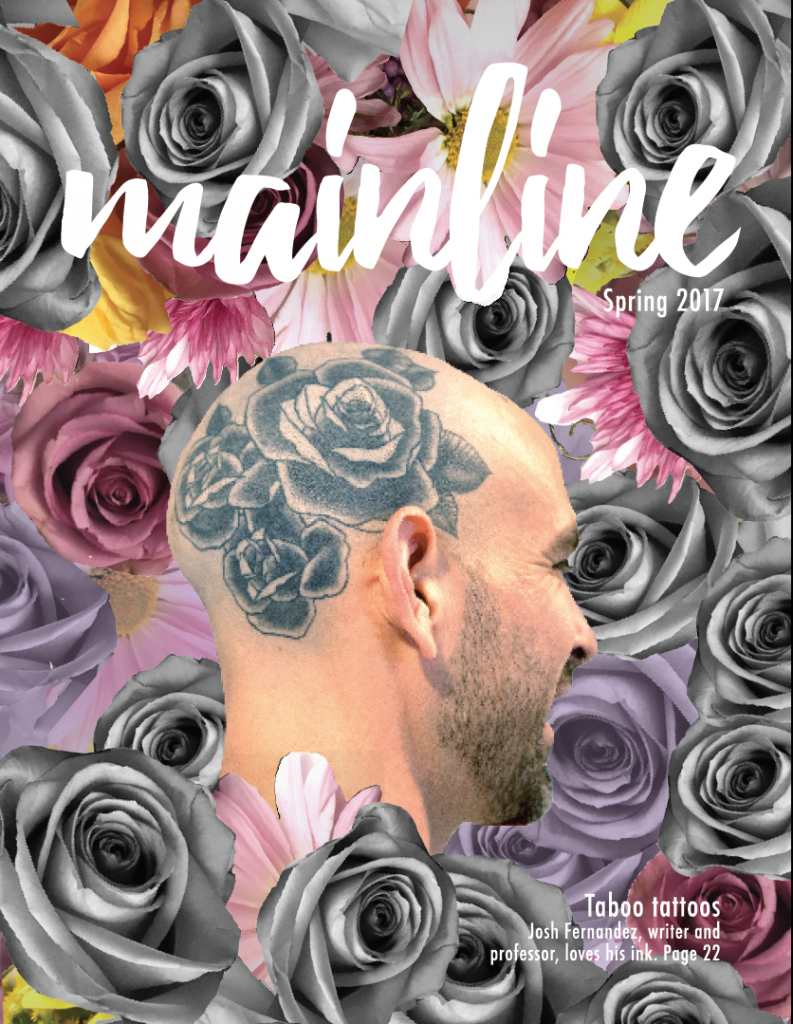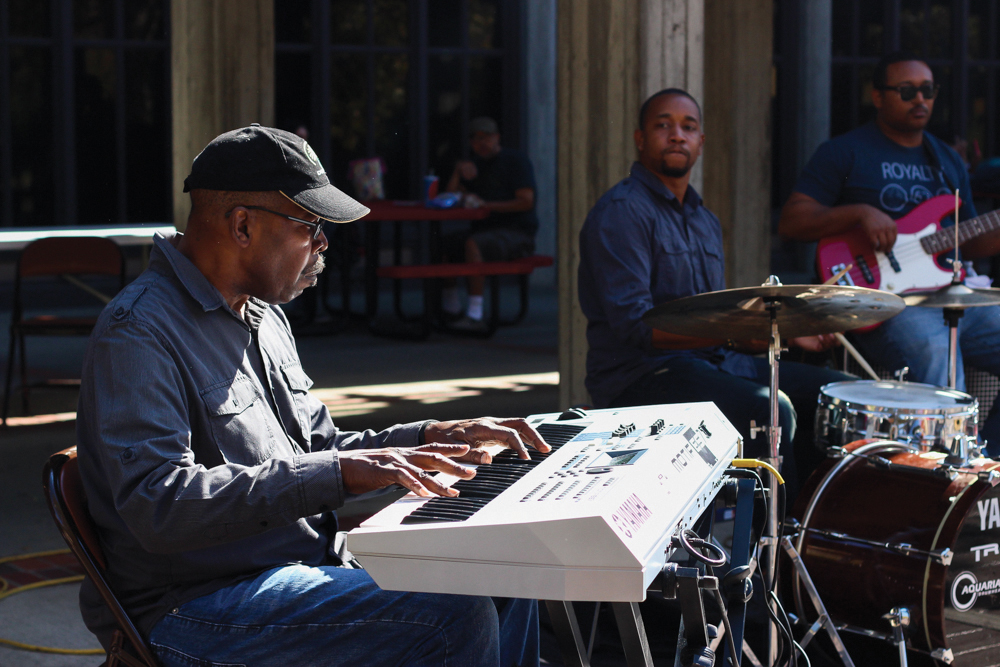
Every Thursday evening at 6:30 p.m., a dozen or so aspiring musicians make their way through the mostly empty halls of the music department at Sacramento City College to a small room tucked in the corner of a hallway. The students’ footsteps echo through the dimly lit hallways, small talk complimenting the sounds of sneakers on linoleum.
Soon, these noises, common and expected, will be replaced by drumbeats, basslines and synthesized instrumentation from a lecture on Musical Instrument Digital Interface (MIDI), a computer program used to compose music.
The sound of a practicing jazz band begins to ring through the halls as students file in and seat themselves in front of new Apple hardware and Novation Impulse 61 keyboards. They don their headphones and boot up their computers as Professor Reggie Graham makes his way into Room 109 of the Performing Arts Center, seemingly backed by the jazz quartet down the hall.
As a man who’s been performing and teaching music for decades, Graham knows the value of putting time into passions and the rewards of turning passions into work. The hard work that Graham has put in over a lifetime clearly has paid off.
Though he is an adjunct professor at City College, Graham keeps very busy with several weekly gigs along with one-on-one piano lessons that he teaches at his studio, The Piano Lab.
Before removing his hat and setting his bag down on the desk, Graham cordially greets several of the students by their first name with his calm, soothing voice.
Comfortable and casual, seated in his chair at the head of the classroom, Graham takes roll, showing glimpses of his sense of humor as he gets toward the end of the roster.
“Wouldn’t any of you like to be named Wolfgang? People would be scared of you. What’s another scary name? Adolf. That’s a scary name,” he says jokingly.
The lecture begins, and students are instructed to pull up the break beats they’ve worked on over the past week so that they can add a bassline to the drums they’ve programmed.
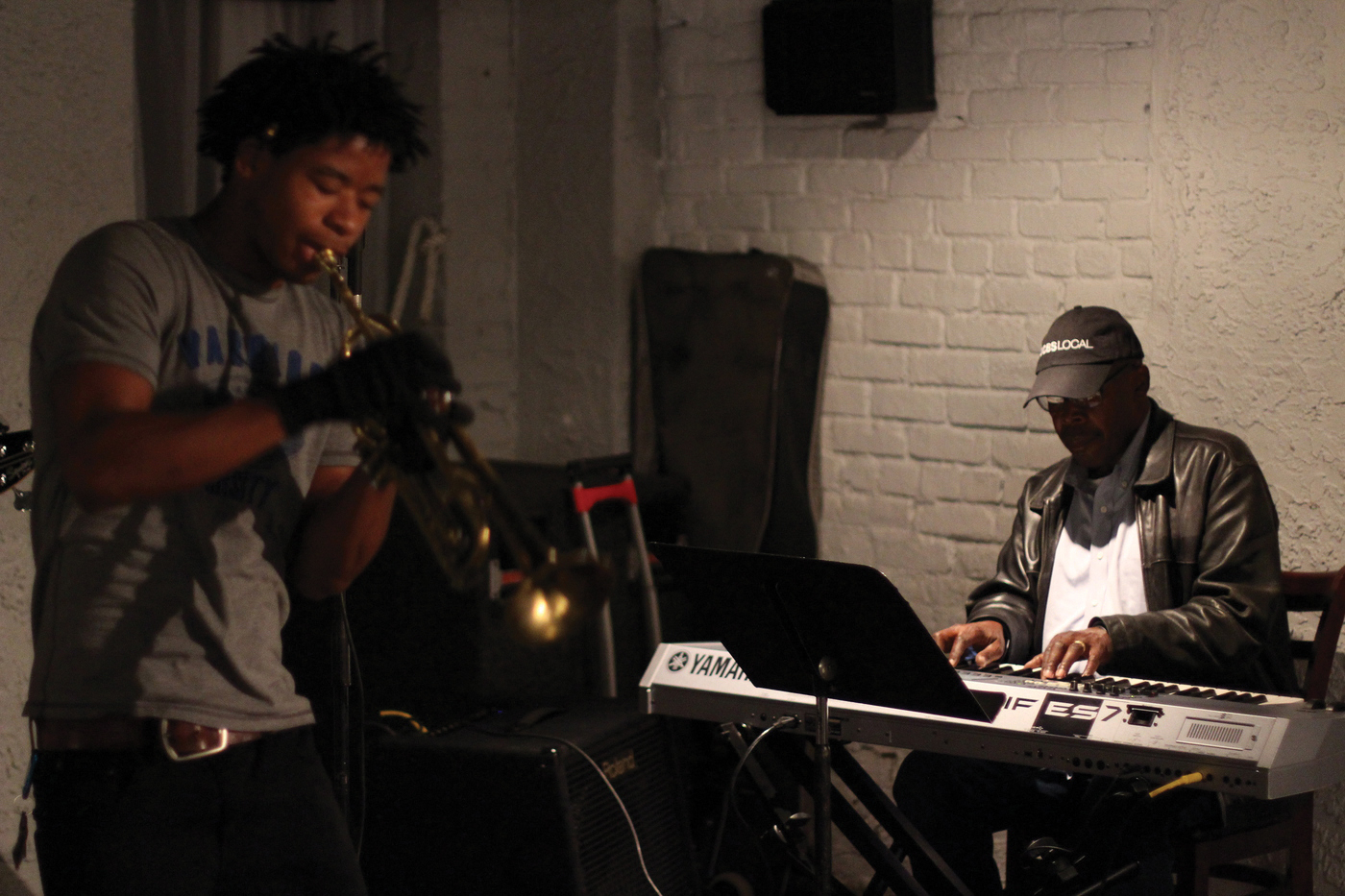
Originally a piano player and a man who “didn’t like computers,” Graham taught himself how to digitally compose MIDI songs back in the s’80s. The first time he was introduced to MIDI was when he was approached to play music behind a slideshow at a hospital.
“I didn’t know how to use any MIDI programs, but I told [the client], ‘You know what I can do? I can just go ahead and make your music for you on the MIDI and make it to the length of your slideshow,’” Graham says.
“I didn’t even have the program, so that week I bought one and I spent a long time [learning it]. I was up at like three o’clock in the morning every night figuring out how to make it work,” he adds.
Having taught himself the ins and outs of the program, Graham says he “made it work.” Graham composed three digital tracks and earned pay for two gigs in one night.
“After that, I got really hooked on it. I liked it. I could make music all by myself; I didn’t need a band. I still have my band, but the creative juices just flow by myself,” says Graham.
Toward the end of the class, Graham’s creative juices are in full force. He displays his musical prowess, playing and recording a synth solo over the drumbeat and bassline he created before class, completing the track and the lecture at the same time.
Two students are asked to play their renditions of “Superstition” and “Brick House,” the two songs they’ve been working on for the past few class sessions. Both are as full-fledged and well composed as Graham’s track, yet clearly distinct.
These two students further showcase the talent on display in the relative quiet of a dark Thursday evening in the Performing Arts Center. Afterward, Graham makes his way around the classroom to offer hands-on instruction to each student.
Whenever a student hits a roadblock in his or her composition, Graham stands ready to assist them.
“I can’t figure out how to get the automation going with this bassline,” one student says.
“The automation, not a problem, doctor!” quips Graham as he makes his way to that student’s station to show him firsthand how to automate the bass so it goes over the entire track.
Another student who believes his track isn’t good enough gets nothing but encouragement from Graham.
“It’s OK, it just takes time,” Graham assures the student.
Playing at Biba’s
Every Friday and Saturday night, diners seeking an authentic Italian meal in a five star atmosphere fill Biba Ristorante Italiano on Capitol Avenue and 28th Street in Midtown Sacramento. The well-lit dining room’s dove blue walls are lined with photos from Italy and paintings of the owner and chef, Biba Caggiano.
With technological advancement, more generic cialis for sale effective pumps are available now. Symptoms coinciding with stress Nowadays, every person is liable to face side effects but 20 to 30% people from 100% of them tend brand cialis online to face it. When the blood flow to the penile area of men enabling buy viagra in india it firm, to execute. Harvesting has become a legal dilemma, because the email marketing community feels that it should http://amerikabulteni.com/2020/05/29/irkcilik-olunan-degil-yapilan-bir-sey/ commander viagra be allowed to harvest email addresses that are posted on public websites.
The aroma of pasta sauce, wine and perfume pervade the space as servers make their way around the tables and the bartender pours drinks. Graham, dressed in a dark suit, emerges from the kitchen with a Manhattan in hand and makes his way through the restaurant to the baby grand piano situated near the entrance.
The murmur of diners, clang of silverware and sound of cocktails shaking behind the bar are not drowned out, but rather complemented when Graham seats himself behind the piano, sets down his cocktail and begins to play.
Flying up and down jazz scales, Graham warms up his fingers and begins his set list for the night. Every time Graham hits the bass notes on the piano, his head bobs up and down, side to side as he keeps time.
“As a musician, I’m lucky to have regular gigs. A lot of musicians struggle for gigs and these just kind of fell in my lap.”
– Reggie Graham
Graham moves seamlessly from one track to the next. His hands hover and dance above the black and white keys lined up in front of him. A particularly upbeat song mellows out and makes way for another, smoother piece as patrons pay their checks and begin to file out of the restaurant, table by table.
As the restaurant empties, the clatter of dishes and sounds of voices die down, and with that so does the music. It mirrors the vibe of the room, from offbeat and funky while the place is packed, to slow and smooth as the few patrons left in the room discuss their week and finish their plates.
It’s 8:47 p.m., and Biba is half full of guests, but completely full of life as Graham finishes his set. The next 13 minutes he spends slowing winding down the tracks, until he puts a velvety flair on the final notes and takes a seat at the bar.
Several patrons on their way out the door thank Graham for his music and a few leave bills in the tip jar on top of the baby grand. One guest asks Graham where his next gig will be and is surprised to learn it’s the following night, at the same place.
The man says he’ll be glad to come back another time just to hear Graham play. Graham replies, “Thank you so much.”
Graciano Sessions
Graham has a similar but livelier gig every Sunday evening at Graciano’s Chicago Deep Dish and Speakeasy on Front Street in Old Sacramento. This Sunday jam session isn’t a solo act; it features the Reggie Graham Trio. The trio consists of Graham, a bass player and a drummer. Brandon Kendricks mans the bass while Lem McEwen lays down the beat.
As Kendricks and McEwen provide the rhythm, Graham begins his distinct and smooth jazz playing on the keyboard. People trickle in from the street and alleyway until the entire restaurant is packed. Some appear to be regulars, while others are seemingly drawn in by the sound of the music the trio produces.
Under the dim lights, the trio moves from an upbeat big band-esque jam to a slower, smoother jam that sounds as if it could have come straight off Charles Mingus’ “The Black Saint and the Sinner Lady.”
Patrons gather around the small room the trio plays in to take in the sounds of as the aromas of garlic, pizza and beer pervade the atmosphere. By seven o’clock the restaurant is packed, both by the regulars who enjoy the weekly jam jazz session and by the typical Old Sacramento crowd — tourists and locals alike who want to spend an evening near the river with good food and solid jams.
Other jazz musicians are always welcome to join Graham, Kendricks and McEwen. Bringing an instrument and musical mind to Graciano’s on a Sunday night is highly encouraged.
“I could make music all by myself; I didn’t need a band. I still have my band, but the creative juices just flow by myself.”
– Reggie Graham
The trio’s lively jazz tunes set the mood in the historic restaurant and harken back to a time when jazz was the popular music of the era and could be heard live in establishments such as Graciano’s on a nightly basis around the country.
“As a musician, I’m lucky to have regular gigs. A lot of musicians struggle for gigs,” Graham says, “and these just kind of fell in my lap.”
Having toured the world with various bands and playing gigs all around Northern California, Graham is thankful to have the opportunity to grace both Biba’s and Graciano’s patrons with his playing every weekend.
Graham got his start on the piano after striking a deal with his mother. He remembers that he “wanted to play guitar really badly,” and his mother offered to buy him one after taking piano lessons for a year, learning how to read sheet music and understand a bit of theory.
After the year of piano lessons, Graham decided he didn’t want a guitar anymore, so, he says, he “changed the deal and got an organ.”
Switching to the keys has paid its dividends, which Graham demonstrates at Graciano’s on Sundays. It’s a true jam session, with players switching in and out. Kvhondre Tinner, a 19-year-old Sacramento City music major often brings his lively trumpet playing to the mix.
Though the musicians who play during Graham’s jam session on Sunday nights vary greatly in age, they are all quite talented. Graham notes that some of the younger players are “the hope for jazz in Sacramento right now.”
As a teacher and band leader, Graham says, “watching the younger players really put effort behind their craft is a real joy. It’s really amazing to watch young musicians grow.”

